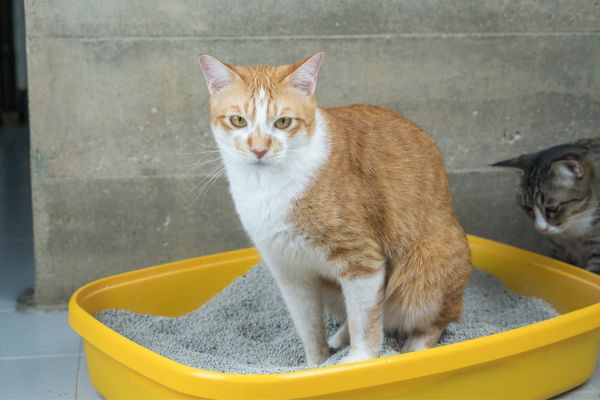Establishing a consistent daily routine for healthy pets is not just a way to keep your furry companions on track—it’s essential to their overall well-being. Pets thrive on structure, and just like humans, they benefit both physically and mentally from having predictable daily activities. Whether you’re a first-time pet owner or a seasoned animal lover, creating a balanced and engaging routine can dramatically improve your pet’s quality of life.
Understanding the Importance of a Pet’s Daily Routine
The foundation of a healthy lifestyle for pets begins with routine. When pets know what to expect from their day, it reduces anxiety, builds trust, and promotes stability. For dogs, cats, and even smaller companions like rabbits or guinea pigs, a structured day reinforces good behavior and creates a strong bond between you and your animal. Beyond emotional health, a well-thought-out daily routine for healthy pets also supports physical health by encouraging activity, appropriate rest, and consistent nourishment.
Pets often mirror the energy and patterns of their humans. If you lead a busy and chaotic life, chances are your pet feels the stress too. This is why integrating simple, repeatable actions—feeding, walks, playtime, grooming, and affection—can form the backbone of your pet’s daily rhythm.
Morning Habits That Set the Tone for the Day
A great day for your pet begins in the morning. After a restful night’s sleep, pets wake up ready to engage with the world. Starting with a bathroom break or a short walk is key for dogs, as it allows them to stretch, release energy, and prepare for the day ahead. Cats, though more independent, benefit from attention early in the day as well. A gentle brushing session or a few minutes of interactive play can stimulate their senses and start their morning positively.
Equally important is morning feeding. Providing a nutritious breakfast at the same time each day ensures digestive consistency and reduces begging or disruptive behavior. Always choose high-quality food tailored to your pet’s age, breed, and health needs. Feeding at the same time daily helps regulate their metabolism and sets expectations around mealtimes.
Midday Engagement for Mental and Physical Stimulation
The middle of the day can be challenging, especially for pet parents who work away from home. However, pets still need engagement and stimulation during this period. For dogs, a midday walk or backyard play session breaks up the monotony and offers exercise that supports joint health and weight control. For cats, placing bird feeders near windows or leaving out puzzle toys can keep them mentally stimulated.
Consistency is key when it comes to maintaining a daily routine for healthy pets. If you’re not home during the day, consider hiring a pet walker or asking a neighbor to check in. Loneliness and boredom can lead to destructive behavior or anxiety, so it’s crucial to make sure your pet feels cared for even when you’re not physically present.
Afternoon Calm and the Importance of Rest
Rest is an often-overlooked part of a healthy routine. Pets, especially dogs and cats, need plenty of sleep during the day to recharge. A quiet, comfortable spot where they feel secure encourages restful naps. Avoid excessive noise or interruptions in their sleeping area, as high-quality rest supports both emotional regulation and immune function.
As the afternoon winds down, another opportunity for connection arises. Light grooming, such as brushing their coat or cleaning their ears, not only keeps them clean but reinforces your bond. Additionally, regular grooming allows you to check for signs of health concerns such as ticks, rashes, or skin conditions.
Evening Activities and Mealtime Rituals
Evenings are prime time for bonding. After a day of solitude or quiet activity, your pet will be ready for more engagement. A walk, fetch session, or cuddle on the couch helps release remaining energy and reinforces your connection. Dogs in particular need this time to expend any pent-up energy, and structured evening play can prevent behavioral issues during the night.
Dinner should follow soon after evening activities. Just like breakfast, maintaining a consistent feeding time helps regulate your pet’s digestive system and maintains portion control. Avoid feeding too late in the evening, especially for dogs, as it may cause restlessness or late-night bathroom needs.
Nighttime Wind-Down for Quality Sleep
As bedtime approaches, begin a calming routine. Just like children, pets benefit from a winding-down period. Reduce household noise and lower the lights to signal that it’s time to relax. Offer a last bathroom break or litter box check to avoid any overnight accidents. Providing a cozy bed or crate in a quiet room gives them a sense of security and a safe space to sleep.
Keeping this pattern consistent each night helps pets develop healthy sleep habits. Over time, they’ll begin to anticipate bedtime and settle down naturally, which contributes to a well-balanced daily routine for healthy pets.
Emotional Health and the Power of Affection
Beyond physical health, emotional well-being plays a major role in your pet’s overall wellness. Integrating affection, praise, and quality time into your daily interactions enhances trust and reduces behavioral issues. Pets are incredibly intuitive creatures—they can sense stress, sadness, and joy. When you make time to truly connect with them, it reinforces their sense of belonging and happiness.
This connection also plays a crucial role in early detection of potential health concerns. By spending time grooming, petting, or simply observing your pet daily, you’ll become more attuned to changes in behavior, appetite, or appearance. Early intervention often leads to better health outcomes, underscoring the value of routine and attentiveness.
Adapting the Routine as Your Pet Ages
A daily routine for healthy pets is not a one-size-fits-all approach. It evolves with time. Puppies and kittens need more frequent play, bathroom breaks, and meals. Older pets may require more rest, gentler exercise, and specialized nutrition. Paying attention to these shifts ensures that the routine continues to serve your pet’s needs throughout every stage of life.
Additionally, changes in your own lifestyle may affect your pet’s routine. Moving homes, changes in work schedules, or new family members can disrupt your pet’s sense of security. Gradual adjustments, introduced with patience, can help ease transitions and maintain the benefits of a structured day.
A Lifestyle of Love and Consistency
In conclusion, building and maintaining a daily routine for healthy pets is one of the most powerful ways you can invest in their long-term wellness. From morning rituals to evening wind-downs, every moment you dedicate to structure and care enriches your pet’s life. It’s not just about meals and walks—it’s about creating a lifestyle that fosters health, happiness, and harmony between you and your beloved companion.
When you make a commitment to routine, you’re doing more than improving their day—you’re laying the groundwork for a lifetime of loyalty, joy, and mutual well-being.







